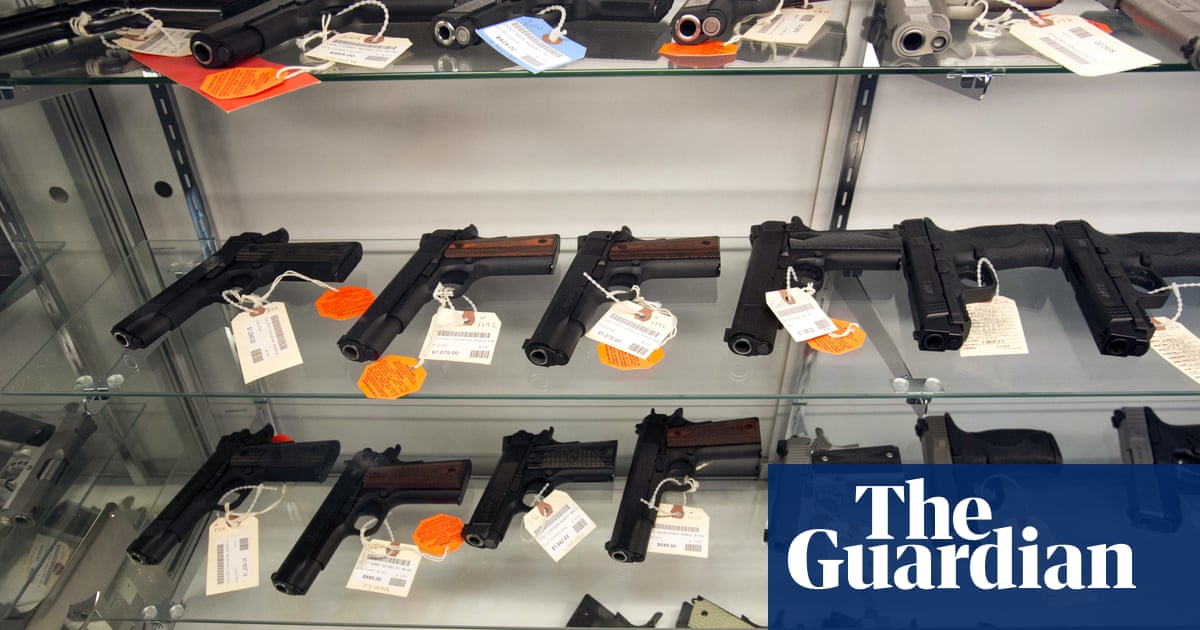‘Politics over safety’: the pro-gun laws giving Americans easier access to firearms - 4 minutes read

America’s relationship with guns will probably never be peaceful, but as a rash of new pro-gun laws spread across the country some fear it could soon be legal in as many as 25 US states to carry a concealed gun without a permit.
Over the past month, Georgia, Ohio and Indiana have moved to abolish requirements for a background check and license to carry a handgun in public. Last year, six states – Arkansas, Iowa, Montana, Tennessee, Texas and Utah – enacted permit-less carry measures, according to the Pew Research Center. Many others are expected to follow as gun rights groups – often politically conservative – push similar plans.
Indiana’s state police superintendent, Doug Carter, said that approval of the measure, which will take effect 1 July, “does not support law enforcement, period”. But the Republican governor, Eric Holcomb, said the permit repeal bill “entrusts Hoosiers who can lawfully carry a handgun to responsibly do so within our state”.
In Georgia, the Republican governor, Brian Kemp, also facing election this year, has argued that residents should have their rights protected – and be able to protect themselves and their families amid a spike in violent crime. Others in the party have cited civil unrest seen in a few 2020 protests over racial injustice in Atlanta.
“This bill gets the government out of our way and allows us to do what we need to do in these precarious times,” said state politician Mandi Ballinger, the Republican sponsor of the Georgia bill.
David Yamane, author of Concealed Carry Revolution: Liberalizing the Right to Bear Arms in America, said the recent sweep of state-level gun liberalization follows a long trend. “From the early 1800s to the 1980s, the concealed carry of firearms was restricted because people thought nothing good comes of people carrying guns hidden on their person,” he said.
After that time, states started to loosen their laws, first passing laws saying license issuing authority “may issue” licenses, which gives the authority discretion, then moving to “shall issue”, meaning the state does not have discretion and anyone who meets statutory requirements will be issued a permit, then to “permitless carry.”
The shift toward unlimited or “permitless carry” started in Vermont and followed a track through Alaska and Arizona. “It’s really picked up steam in the last decade with the progression of the idea to make it easier for people to carry concealed firearms without restrictions,” said Yamane.
But Yamane cautions that “permitless carry” does not mean there’s no background check – only if you have a legal right to bear a firearm can you carry concealed in public. “It’s not throwing out all restrictions. You still can’t carry in federal buildings or on school property, and you still need to pass a criminal background check,” he said.
To Josh Horwitz, executive director of the Coalition To Stop Gun Violence, the legislation necessarily means that the more guns in public, the more dangerous it is for people. “The data shows that the relaxation of permitless carry laws has led to more gun violence and there’s no evidence of any protective factor. And remember every data point we look at is someone deceased,” he said.
According to the CDC, more Americans died of gun-related injuries in 2020 than in any other year on record – 45,222. That figure includes a record number of gun murders, as well as a near-record number of gun suicides, which make up 54% of the total.
The figures do not necessarily do justice to the politics of the issue, in part because the effect of loosened gun laws are not immediately apparent. But the momentum is clear: in New York “may-issue” laws are being challenged in supreme court, while state-level legislatures are pulsing with multiple challenges to guns restrictions, from Stand Your Ground – the right to self-defense – to permitless carry and red flag laws.
Source: The Guardian
Powered by NewsAPI.org